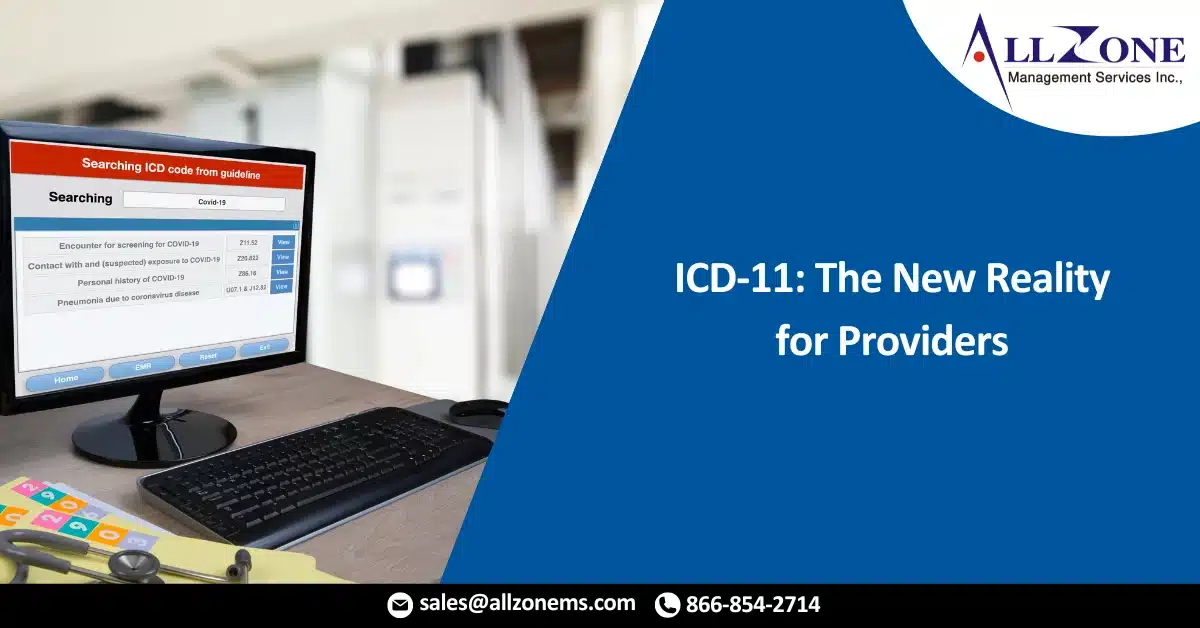Now is the time to begin preparing for the new code set.
It is good to be back to talk about ICD-11. Yes, it’s a reality now, and all providers can start to get prepared for this significant new ICD-11 coding system.
ICD-11 has been years in the making, and it is a result of collaboration with clinicians, statisticians, epidemiologists, coders, and classification and IT experts from around the world. For the first time, the ICD-11 coding system has been made fully electronic, with 17,000 diagnostic categories and over 100,000 medical diagnostic index terms. The website notes that an index-based search algorithm interprets more than 6 million terms. Yikes! All are saying that books will not be possible. The reference guide is available online and has three parts: an introduction, “using ICD-11,” and “what’s new in ICD-11 Coding System.” Check it out. You will learn a lot.
Sue Bowman from the American Health Information Management Association (AHIMA) and I were at a weeklong meeting of the World Health Organization Family of International Classifications (WHO-FIC) two weeks ago in Banff, Canada. The entire week was all about ICD-11; Lorraine Fernandes, also from the U.S., was also in attendance at this meeting, as was the current president of the International HIM Association, IFHIMA.
We heard a lot of updates from many countries. And all of them seem a bit further ahead than we are – but our government is determined to have a much better process than we had going from ICD-9 to ICD-10. I believe them on this!
Iran has ICD-11 pilots going on in selected hospitals, one with over 1,000 beds. They are working on coding accuracy. Israel uses ICD-10 but also said some areas were still in ICD-9, though all are working towards ICD-11. Malta and Poland were new to our group, and are working on ICD-11. All countries have had a longer experience with ICD-10 that we have. We were the last to adopt ICD-10-CM, in 2015.
I will encourage you again to look at the ICD-11 training tool online. Just have fun with it. Enter some diagnoses and see what comes up. Look how different the codes look! It is an easier ICD-11 coding system to learn, and everyone is saying that. Canada has trained coders in ICD-11, and had them code 3,000 cases in three Calgary hospitals. The coders reported that the ICD-11 coding system was easy to learn and use, and data quality was good. That is encouraging! Rwanda reported that with 1-2 hours of basic training in ICD-11, their coders achieved good accuracy. Yes, 1-2 hours!
ICD-11 is a big improvement from previous editions, and the WHO is saying there may not be an ICD-12 – ever. Imagine that. Some of us have lived through ICD-8, ICD-9, ICD-10, and now ICD-11 – but It is so comprehensive, with so many permutations, and it can be updated as needed. Hurrah!
Japan has a full 20 years more experience with ICD-10 than us. They have finished translating ICD-11 into Japanese, and plan to implement ICD-11 in hopefully, three years. Yes, they will probably be first – and we just don’t plan to be last again. We are committed to a faster and more effective process. A lot will depend on the decision of whether we develop a CM edition or not.
Sue Bowman and I both noted that other countries, while further ahead on development, still struggle with the same issues as we do in the U.S. in terms of the quality of the underlying data. It’s hard to get good codes from the documentation that is not of high quality. That’s probably a significant takeaway away for everyone in the industry.
Be relentless in your quest for accurate and detailed data in the health record documentation; that will make coding easier now and in the future.
For More Information: https://www.icd10monitor.com/icd-11-the-new-reality-for-providers

